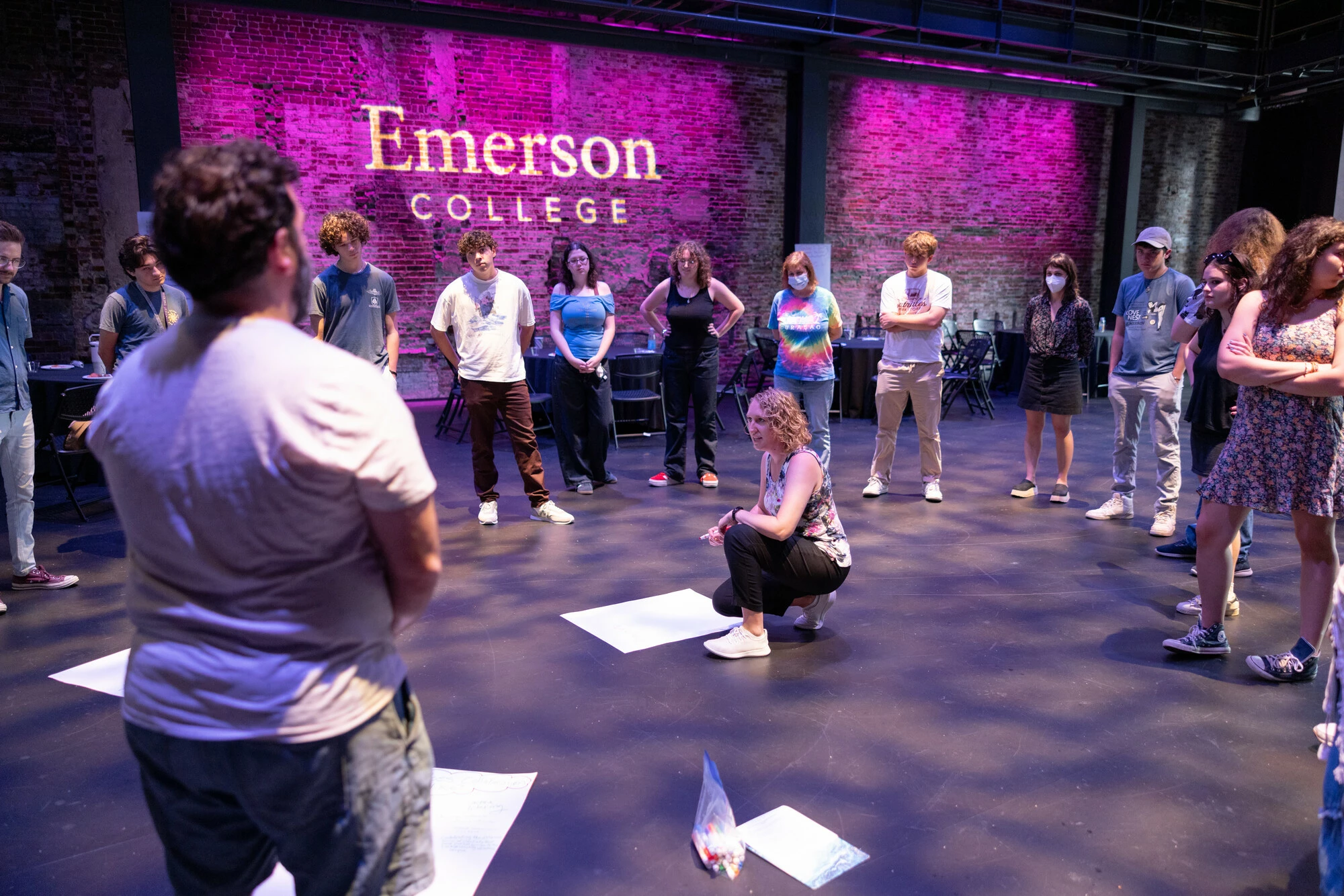Community, Leadership, Experimentation, Diversity, & Education
Pittsburgh Arts, Regional Theatre, New Work, Producing, Copyright, Labor Unions,
New Products, Coping Skills, J-O-Bs...
Theatre industry news, University & School of Drama Announcements, plus occasional course support for
Carnegie Mellon School of Drama Faculty, Staff, Students, and Alumni.
CMU School of Drama
Tuesday, October 24, 2023
An Approach to Content Warnings in the Theatre Classroom
HowlRound Theatre Commons: A year ago, I enrolled in a graduate course about Theatre for Young Audiences (TYA) which required students to study several plays for audiences as young as two and up through their late teens and early twenties. All of the students in this class, including myself, were masters students in a Theatre Education and Applied Theatre program. Most of the students in that class intended to teach at the K-12 or collegiate level. And most, but not all, of the students in the class were white women between the ages of twenty-three and thirty-five.
Subscribe to:
Post Comments (Atom)

4 comments:
It’s really interesting learning about content warnings, as we usually get content warnings about explicit scenes, or scenes with topics that may cause us to be uncomfortable. We don’t often get content warnings with shows about BIPOC characters, and I agree with the professor, these people are often just required to carry a heavier burden in the content, and I’ve personally also experiences similar experiences. We were reading a play that discussed indigenous characters, but the other people that I was reading with were not very educated about the topic and would often make jokes, and as much as I wanted to have them stop, it was really difficult to have them change their point of view, and it was really uncomfortable for me to be reading the play with them. I think that content warnings should not only be for the people who might be affected by it, but also for the people reading it in general to be more ready for the content.
Content warnings have always been a hot topic in the entertainment industry. I have always been an advocate for them but many people feel passionate in the other direction. Content warnings in the theatre classroom can be a thoughtful and considerate approach to ensure that students feel comfortable and prepared for the material they will encounter. You never know what someone has gone through. This means it’s impossible to catch everything but explicitly mentioning potential triggers related to the content means that students are able to take in the educational importance while being aware of how it might affect them. Students should always have the option to opt-out of participating in scenes or projects that may be particularly distressing for them. At the end of the day, recognizing that students have different comfort levels and backgrounds is just as important as their reactions to the plays themselves. I don’t think they ruin anyone’s experience.
Content warning are of the utmost importance in any situation. There are many pieces of content that have mentions of implications of sexual assault, abuse, sex, suicide, murder, and many other examples. In the article, Sydney Isabela Mayer says content warnings “are about giving an audience the appropriate information needed to make a choice about what they want to be exposed to.” and that is of the utmost importance because you never know who is in the audience and what their reaction may be to what is being portrayed. I agree that schools should continue / if they haven't already, to add content / trigger warnings to any reading or films that students study. Especially that some of the readings given by teachers are required by the school district to be taught. When my high school taught us Of Mice and Men, there weren't any CWs given to us regarding the gun violence, and abuse seen in the book.
Ah yes, one of the school dramas favorite topics. Of course the use of content warnings and how effective they are depends on the person so from my point of view I think there is a middle ground. I think it is important when dealing with very traumatic experiences or common traumatic experiences like racial violence or sexual violence, it is worth noting because the odds of somebody having in the audience having experienced that trauma are so high. I think sometimes people feel the need to be very nitty gritty and that is when it does more harm than good. I am surprised that this unpublished study determined that content warnings before class readings did more harm. I often find that while I don't need very specific content warnings it gives me a better understanding of what I'm going into so that I am able to go into it less blindsided. Sometimes the element of surprise is important but I think often I am able to control my reaction then.
Post a Comment